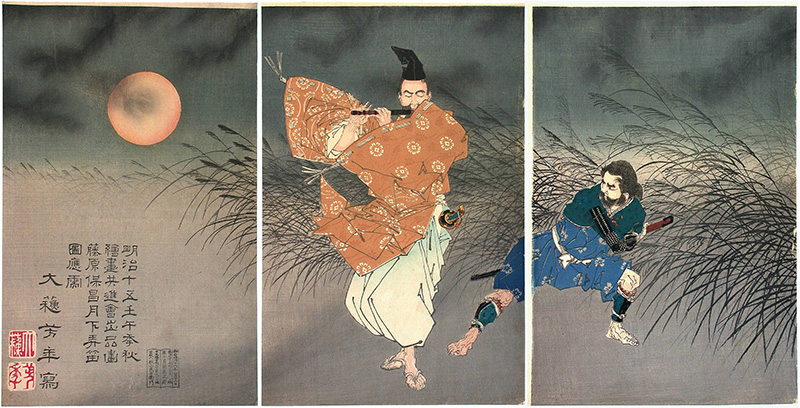I’ve written quite a lot about Japanese family names recently. However, simply learning the kanji or pronunciation of names is quite boring, so I thought I’d write an article with the stories behind the most popular family name in Japan. Each name, however, has quite a long story. So today, we’re just going to explore the most popular one: 佐藤 (Satou).
You will learn not only what the root of Satou is and how it became the most popular in Japan, but also what people with the family name Satou think about their name as well as their experiences with their family name. Please note that learning the history of Japanese family names is essential to fully understand the stories in this article, so I suggest that you read the previous article first.
If you are not that picky, or have read all the other articles already, then we are all set to go. Let’s talk about Satoooouuuu!
How 佐藤 (Satou) Became #1

The most popular family name in Japan is Satou. You’ve probably gathered that already. According to 名字由来net, around 2,055,000 Japanese people have this family name. Its most common way of reading it is さとう (satou), but there are others as well, such as さどう (Sadou), さとお (Satoo), さと (Sato), さいとう (Saitou), そとう (Sotou), さふじ (Safuji), and さとを (Satoo). Confusing, right? Welcome to Japanese names, I guess.
Satou used to be the second most popular name in Japan, but once computers started being used, more samples were able to be collected and this name was proven to be the most common. When people had to collect the samples manually, it must have been very difficult to gather and keep all of this information in an accurate way. Is it possible that a whole prefecture could have been missed? The name Satou is found in its highest concentration in rural Tohoku, in Northeastern Japan. When looking at the most popular name in each prefecture, it usually comprises 1-3% of the population. However, the name Satou in the Tohoku region (specifically Akita and yamagata Prefecture) is comprised of approximately 7% of the population. Why is it so surprisingly high? To reveal this mystery, we have to take a look into the roots of the name.
The Origin Of 佐藤 (Satou) Actually Begins As Another Name?

The origin of 佐藤 (Satou) is actually found in another family name: 藤原氏 (Fujiwara-shi). As explained in the family name history article, an incredible number of people used 藤原 (Fujiwara) in the Heian period. It was inconvenient to call everyone Mr. Fujiwara, so people started making their own more distinctive family names by combining 藤原 (Fujiwara) with the name of the region they lived in or their occupation. 佐藤 (Satou) was one of them. In other words, it can be dismantled like this:
佐藤 佐 + 藤原
If that’s the case, what is this 佐 kanji? Actually, there are two meanings for 佐, and one is a job title and the other a regional name.
Job Title Satou
Let’s learn the roots of the job title first. Under the Ritsuryo Code in Japan, there were 4 main types of job titles in the provincial government: Kami, Suke, Jou, and Sakan. For some reason, each provincial office used different kanji for these titles, and 佐 was used in some offices for the position called Suke. Therefore, a person with the name Fujiwara at this position used “佐藤 (Satou)” as their name.
There was also a governmental post called 左衛門尉 (Saemonnojou) at the time, and a person with the name Fujiwara at this position combined 左 + 藤原 and named themselves 佐藤 (Satou).
Regional Name Satou

As a regional name, there are several places tied to 佐. The most well known of these places is 佐野 (Sano) in Tochigi prefecture. A Fujiwara who lived here combined 佐 with 藤原 and called themselves 佐藤 (Satou). This place is also known for the legend in which 藤原秀郷 (Fujiwara no Hidesato) killed a giant centipede. It’s said that one of his grandchildren, named 左衛門尉公清 (Saemonnojou Kinkiyo), was the first person to use the name 佐藤 (Satou). His descendants all worked for the Imperial Court until 佐藤義清 (Satou Norikiyo) suddenly left the house to become a monk at the age of 23. He turned into quite the famous poet and renamed himself Saigyo Hoshi, but he ruined his family. Although his younger brother inherited the name 佐藤 (Satou), the lineage sank into history and became an unrecognized family.
The reason why so many 佐藤 (Satou) are in the Tohoku area is said to be due to 奥州藤原氏 (Oushuu Fujiwara-shi), a.k.a. the Northern Fujiwara. Oushuu Fujiwara-shi was a Japanese noble family that ruled the Tohoku region of Japan from the 12th to the 13th centuries as if it were their own realm. Some of the descendants that remained in the area are still known as Satou. Also, the Satou that were the descendants of the Oushuu Fujiwara-shi family based out of the 信夫 (Shinobu) region (currently Fukushima City in Fukushima prefecture) were so many in number that they needed to be called 信夫佐藤 (Shinobu-Satou). The Fujiwara family that lived in 佐渡 (Sado) in Niigata prefecture also started calling themselves 佐藤 (Satou). As you can see there are a lot of regional origins for the name Satou, but this doesn’t even scrape the surface. There are so many more (though you’ll just have to imagine them now).
Randomly Named 佐藤 (Satou)
Despite the various forms of Satou that there are today, not all of them came from the Heian Period. In Japan, people who didn’t have a family name during the Meiji era were forced to decide on their family name. At that time, Satou was one of the most commonly selected names.
So, whether it was from job titles and regional references, or just a bunch of people choosing Satou because they weren’t sure what to pick, Satou became the most popular Japanese family name of all time. With so many people having the same family name (who aren’t even related by blood), what do they think of their name? Are they proud? Let’s find out.
What People Named 佐藤 (Satou) Think Of Their Name

According to みんなの苗字あるある (minnanomyoujiaruaru), people whose family name is 佐藤 (Satou) are proud that their name is the most popular in Japan, but they also encounter problems due to the fact that there are so many.
Since there is usually more than one Satou at school, most of them were distinguished by being called by something other than their family name. Many of them agree that being called by their first name is the best, but sometimes we are called 佐藤-A (Satou-A) or 佐藤-B (Satou-B). What’s worse is that people often distinguish us in ways like 頭良い方の佐藤 (Atamayoihouno Satou), which means “Smarter Satou” and “Not the Smarter Satou”, or 格好いい方の佐藤 (Kakkoiihouno Satou), which means “The Handsome Satou” and “Not the Handsome Satou”.
Many Satou have also experienced hearing someone shout, “Hey! Satou!” and when they turned around to respond, “Yeah?” they realized it was intended for a different Satou. Due the frequency that this happens, some Satou say that when they hear their name, they’ll wait to respond for a moment just to see be certain.
As some of you Japanese learners have probably already realized, 佐藤 (Satou) is the same pronunciation as sugar 砂糖 (Satou) in Japanese. Therefore, Satou people tend to be made fun of with puns on the word sugar. Some Satou say that they learned how to deal with other really lame jokes directed at them because of this. Speaking of puns, since the number 310 (San-tou) sounds similar to Satou, some 佐藤 (Satou) are very happy whenever they find the number alignment.
So, it’s all been about Satou today. I’m certain that the Japanese family name Satou has been carved into your memory by now. My family name is 鈴木 (Suzuki) used to be the most common name in Japan before computers messed everything up. So, I’m a little jealous of Satou now. Perhaps to make up for it I may explore the story behind Suzuki’s origins, but we’ll see. Until then, I’ll keep talking about how “sweet” the name Satou is.
What is the most common name in your country and what is the story behind it? Have you met someone named 佐藤 (Satou) before? Whatever you may have that relates to 佐藤 (Satou), please leave it as a comments below! Thank you and bye for now.
